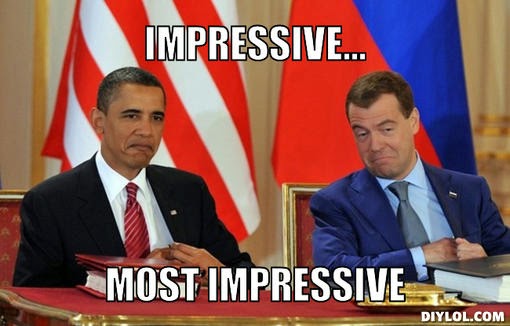The problem?
I've lived in Europe for about a year. In Denmark, as in most of the non-English countries I've visited, I'm frequently astounded by some people's linguistical abilities.
On a laundry list of the world's biggest issues - the plight of people who only speak English is as likely to elicit sympathy as people moaning about their slow WIFI connections. There will be no charity concerts, no solidarity marches - native English speakers like me just have to steel our hearts against the reality that most of the world can speak more languages than us.
On a laundry list of the world's biggest issues - the plight of people who only speak English is as likely to elicit sympathy as people moaning about their slow WIFI connections. There will be no charity concerts, no solidarity marches - native English speakers like me just have to steel our hearts against the reality that most of the world can speak more languages than us.
Obviously not everyone I've met speaks perfect English. I've encountered a variety of levels of aptitude. At one end of the spectrum I've met some Frenchies, Italians, Spaniards or Germans with totally impenetrable accents (even if their written English was fine) and found myself in parts of Europe where I had to communicate through exaggerated mime.
At the other end of the spectrum, I study in a Master's programme as one of 74 people from 40 countries. This puts me in the minority (around 15-20 percent) of native English speakers.
Although I'm used to it now, I've regularly found myself in situations where a virtual United Nations of classmate are debating the US's wranglings with a burgeoning but inflationary challenged Russia - in almost flawless English. They then seamlessly slip into their own language, and sometimes several others, and leave me sitting clueless until they return to English. My usual reaction is to nod and smile and focus intently on an interesting spot on the ceiling.
Only marginally serious authors note:
Whilst I might appear obsequious during such happenstance, I do take umbridge at the vociferous predilections of those who have a penchant for sojourns into other tongues which exclude those of varying hues and creeds from experiencing a meaningful melding of minds. I nevertheless refrain from repudiation displaying a modicum of tolerance, what erudite gentleman would do otherwise? (If you know all the above words, your English is pretty fantastic).
Why are Europeans generally so good at English?
As far as I'm aware, most European country's school curricula include compulsory English classes (as well as other languages) from an early age. Within Europe, Scandinavians (along with Dutch and Belgians) generally speak the best English. That's gotta be partly due to a fact that they subtitle, rather than dub, their foreign movies and shows.
Another fact: with a continent bursting with many languages - it makes sense to have a universal language. Danish would be screwed if they expected the rest of Europe to know their charming (described by them and others as sounding like having a potato lodged in your mouth) language.
Technically - I'm not entirely mono lingual. I can speak Indonesian reasonably well but unfortunately there are no other Indonesians in my programme.
 |
| A Hungarian, British, Canadian, Brazilian, New Zealander, Swiss, two Germans and a Bulgarian bond through the universal language of Poker |
Why so few English speakers knowin all dem other languages?
As a child, when I would meet foreign visitors in New Zealand, I would always assume that because they could speak multiple languages, they must automatically possess some talent that most Kiwis didn't have. How could they know my language so well, yet I knew nothing of theirs?
As I grew up, I realised that speaking multiple languages for most of the world is something totally normal. Some people ARE more gifted than others but the very fact that nearly every Danish high school student can speak great English would suggest that it's a matter of education, rather than innate talent. Even if someone is shit at school - learning English intensively for 10 years as well as watching English TV shows, movies and listening to English music means that for most people, something is going to stick!
While not exactly the setting for a great Greek tragedy - fact is, if you are born in an English speaking country - statistically speaking you are part of the group of people least likely to speak a second language. In Europe, the UK and Irish are some of the least likely to speak a second language. There are some fairly obvious reasons for this.
Well we can partly thank these guys -
 |
| Dashing uniforms - shame about subjugating and fucking over cultures around the world |
Centuries of British colonisation, dominance of world pop culture by English-speaking media in the 20th century and English becoming the language of aviation and the internet are some of the factors that have seen English firmly cemented as the lingua franca.
Bill Bryson has an excellent book on this very matter, called The Mother Tongue
The language situation in New Zealand
Some New Zealander's are fluent in other languages - from our part of the globe we have Maori, a variety of Pacific languages and NZ sign language. There are also Kiwis who speak Japanese, French, German and a multitude of others. However, true fluency in other languages is pretty uncommon. Why?
Even if we do learn other languages at school - one has to be live in an environment where they can put their adopted language to use.
Practically speaking - native English speakers in different countries have an easier or harder time practising with native speakers ofc other languages. US citizens could theoretically pop across to Mexico to practice Spanish. Canadians have a whole French region in their country and English folk are just an hour's journey from France and not far from a veritable array of other countries and languages in Europe.
New Zealand and Australia on the other hand, are far from anywhere.
In New Zealand, there's no particularly need to have a second tongue and there's no absolutely logical second language. Around 5 percent of our population are fluent in Maori (compared to around 12 percent of NZ's total population identifying as Maori). Compare that with Belgians who are in an environment where they can speak French, Flemish and English regularly and it's really no surprise they speak a lot of languages and we don't.
The fact that English is so ubiquitous and globalisation is well and truly in effect means for learners of English, practicing is pretty easy. I've been in clubs all around the world and although some places will have a greater or lesser preference for their local music, there's nearly always English songs somewhere on the play list. Sim
Is only speaking English really a problem?
How you answer this question depends on how you look at it:
People who think you should learn a language other than English say:
* Only speaking English, if you are given the opportunity to learn other languages is arrogant. Why assume that just because you happen to be born in an English speaking country that it's the best way of communicating?
* Other language gives you a different perspective on the world - the words someone uses give you a window into the way they think.
* Speaking the language of a foreign land will generally give you a richer experience of a country, than as an outsider who just speaks English. Just as we appreciate that others who visit our shores can speak English, so too did Indonesian appreciate when I could with them in their language (even if I often get stuck for words or make grammatical mistakes).
People who think you shouldn't learn a language other than English say:
I've met many people who could not give less of a shit about other languages. They are firmly of the view - "What's the point? Everyone else either can speak or wants to learn English. Besides, learning another language takes so long!"
* Will we ever use a language other than English? What's the point in learning if I'm only ever going to go on short holidays to non-English countries?
Words that have no direct English equivalent
You may have heard of untranslatable words that exist in other words that are not available in English.
These words capture ways of thinking and expressing we cannot capture so eloquently. These are a few I'm familiar with.
German:
Schadenfreude - Pleasure derived from the misfortune of others
Fremdschämen - Feeling embarassed on behalf of a friend
Wanderlust - A strong desire to travel
Indonesian:
Jayus - when someone tells a joke that's so bad, you cannot help but laugh.
Hebrew:
Koev halev - Empathising with someone so deeply that it causes your heart to ache
This is a very limited list but it gives a slice into a whole different world of terms and ways of understanding.
Learning another language (and crucially using it) gives you the opportunity to experience a culture you wouldn't otherwise.
In his book Outliers - author Malcom Gladwell writes of how the structure of the Asian language gives Asian school children a distinct advantage over English speaking kids when learning to count and do mathematics. Because their numbers have fewer syllables than English, Chinese kids can count to 100 much faster than English kids can.
Words in your head correspond to concepts. So the language we use therefore effects the way we think! I heard a podcast the other day that said the in cultures where they have more words for different colours, they can actually recognise more colours than cultures.
There are other fascinating things like how some languages give every noun a gender (In German the sun is feminine and the moon masculine for some reason that most Germans will admit is completely random). In other languages (such as Russian and Mandarin) which don't have articles. Hence when they learn English they will often say "I go shop" instead of "I am going to the shop"
Alright then.
So you're extolling the virtues of learning another language and yet you've lived in Denmark for 8 months and can speak about 20 words of Danish.. What's up with that?
So you're extolling the virtues of learning another language and yet you've lived in Denmark for 8 months and can speak about 20 words of Danish.. What's up with that?
I knew prior to arriving here that Danish were among the best non-native English speakers in the world. I also knew, that after I left Denmark, I'd be unlikely to return here again. In my time here, I've barely encountered a situation when someone can't understand me. The only times I can think of were with Danish people 60 years or older.
There is the opportunity to have free Danish lessons through the state and I think that's awesome.
But I'll be living in Germany later this year and I figured it's more useful to invest in a language with more speakers and a greater chance of using it long-term.
How it feels when you can't be understood
Sometimes - there have been situations when I've travelled - particularly in China, where I felt totally alone when I was got lost (there were always people around but just none I could understand).
 |
| Please note: My approach to Chinese was considerably more gentle than this. |
In those situations I've got to check my privilege. If I'm in someone elses country - it's not really fair for me to expect them to speak my language. While English may be an international language and many non-native speakers rely on it when travelling, some people get pissy when nobody can. I certainly wouldn't be able to bust into Mandarin if a Chinese tourist in Auckland suddenly wanted to discuss the best place for a coffee on Queen street. I would be curious whether, a century from now, English is still as dominant as it currently is.
As an adult, learning a second language takes a lot of time and effort and for some - there's no discernible pay off. I can say that learning Indonesian and now German is a very satisfying experience. Whether I reach true fluency or not, remains to be seen.
Could technology bridge the language barrier?
 |
| A screenshot from the Skype promo video for their new translation software |
While I would sincerely love for more countries, such as NZ to institute compulsory second language learning and for more English speakers to make an effort to learn other tongues - technology might be providing us with an easy way to bridge comprehensions gaps between different languages.
I'm sure many of you are familiar with the Google Translate app. Its voice function currently allows you to say something into the recorder and have it almost instantly translated into dozens of languages of your choice (they even have Esperanto!)
Skype is also employing similar technology. You can watch video demonstrations on YouTube of little girls from different countries having a live conversation with Skype, where their words are instantly translated to each other.
The technology is very much in it's early stages. Sometimes it translates literally, without capturing the intricacies of a particular lexicon. It can be slow, it doesn't always understand particular accents or slang. The beauty is - that the technology is developing and improving all the time.
Given how quickly other technologies (particularly cellphones) have developed in the past decade, I don't think it's optimistic to imagine that in the next ten years we might see sophisticated, portable translation devices (ala Babelfish from Hitchhikers Guide to the Galaxy), perhaps in the form of a blue tooth earphone. If the technology gets good enough, there should be minimum lag between the spoken word and the translated version that feeds to your ear. If the devices became ubiquitous, you would have far more people from different countries being able to communicate with each other.
I for one, would love to have had a translator in parts of China when I was hopelessly lost and sometimes struggled to find a single soul who could speak a word of English.
I think such technologies would have dramatic implications for people who work in translation and our education system. However, like any good gadget, if it's useful and people want it - it will be made.



No comments:
Post a Comment